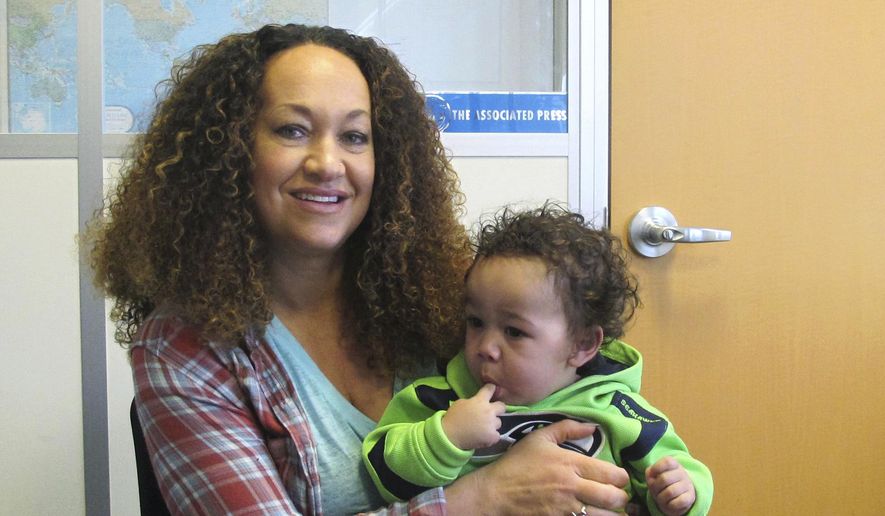OPINION:
Rachel Dolezal, the white woman who snuck into the leadership ranks of the Spokane, Washington, NAACP offices by passing herself off as black, has just delivered the world of psychiatry another project to disseminate and study: Her new memoir, “In Full Color: Finding My Place in a Black and White World.”
It’s due out next week. And if advance reviews are any indication, it’s a wild ride that’s going to leave the reader with the simple conclusion: This woman really needs help.
Joe Simonson of HeatStreet perhaps sums it best: “Unfortunately, America is a place with weak protections for the average worker. Because of this reality, I’ve been forced to spend the last two days reading Rachel Dolezal’s new autobiography.”
Sympathies to Simonson.
The excerpts of Dolezal’s book are nothing but proof positive of her mental health demise.
She compares her childhood chores to slave labor.
She remarks about her freeing from whiteness during her college years as a momentous occasion — the achievement of a long-held childhood dream.
“[In college, I was] finally able to embrace my true self,” she wrote. “I allowed the little girl I’d colored with a brown crayon so long ago to emerge.”
She comments on the crumbling of her first marriage — to a black man — as due to his inability to be black enough.
“[I] was a little too black” for his “tastes,” she wrote, adding that she learned, post-divorce, “that a Black man could be, culturally and philosophically, as white as any white man.”
And even now, even after all the angst her deceitful public presentation as a black woman has caused — from her loss of job to her inability to find new employment to the humiliation and mocking she’s suffered because of the lie she wants society at-large to accept — Dolezal stands by her quest for blackness.
Here’s an excerpt from her book: “Living as a Black woman made my life infinitely better. It also made it infinitely harder, thanks to other people’s racist perceptions of me. The Blacker I became — not just in the clothes I wore or the books I read but in terms of how I was being seen and treated — the more distant and isolated I felt from white people. [I stopped] feeling obligated to check WHITE on medical forms and once I started claiming my identity and check[ed] BLACK, any whiteness I possess became invisible.”
Except it didn’t — not really.
Dolezal may have started tinting her skin, and weaving her hair, and presenting as a black woman. But as an investigation by the Daily Mail Online showed, Dolezal’s family line, as far back as 1671, contains no black relatives. She’s white.
And while it’s her choice to live as she wants — black, white, male, female, what have you — it’s society’s choice to choose whether or not to be complicit in the lie.
She states her goal in writing the book “is to provide comfort to those who are struggling with their identities and assure them that they’re not alone, that they’re not freaks and that they don’t deserve to be ridiculed or shunned by their friends, families and communities.”
But being born black versus white is not a choice. It just is.
Dolezal, sadly, has a serious mental health problem. And she is needful of compassion. But that compassion should have a limit, and that limit should go like this: Dolezal is white. It’s not racist or discriminatory to refuse to perpetrate her lie and participate in her deception. It’s simply truth — and in the end, honesty is the more compassionate route than deception, anyway.




Please read our comment policy before commenting.